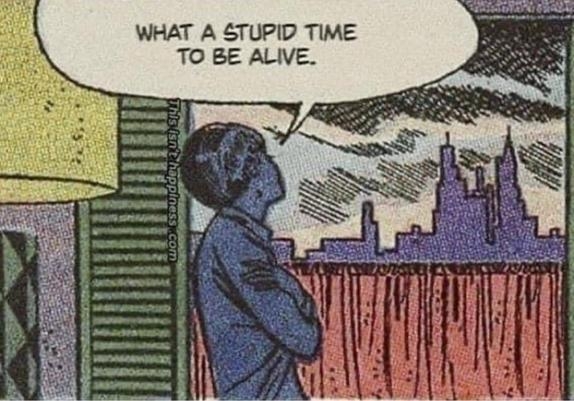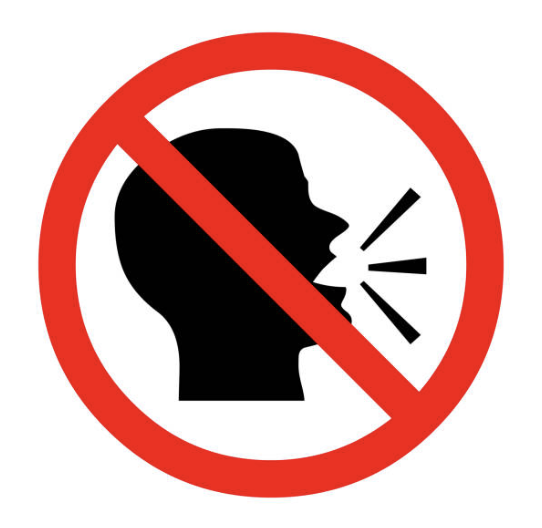Actually, those are not the same. Natural numbers include zero, positive integers do not. She shoud definately use ‘big naturals’.
Edit: although you could argue that it doesnt matter as 0 is arguably neither big nor large
Natural numbers only include zero if you define it so in the beginning of your book/paper/whatever. Otherwise it’s ambiguous and you should be ashamed of yourself.
Fair enough, as a computer scientist I got tought to use the Neumann definition, which includes zero, unless stated differently by the author. But for general mathematics, I guess it’s used both ways.
Big naturals in fact include two zeroes:
(o ) ( o)
Spaces and parens added for clarity
(0 ) ( 0)
You can’t fool me.(o Y o) solve for Y
When enclosed in parentheses I believe the correct term is “bolt-ons”
Depends on how you draw it.
Strictly positive numbers, Z0+, don’t include zero. Positive numbers aka naturals, Z+ = N, do.
Edit: this is what I’ve learned at school, but according to wikipedia the definitions of these vary quite a bit
Natural numbers include zero
Only if you’re French or a computer scientist or something! No one else counts from zero.
There’s nothing natural about zero. The famously organized and inventive Roman Empire did fine without it and it wasn’t a popular concept in Europe until the early thirteenth century.
If zero were natural like 1, 2, 3, 4, then all cultures would have counted from zero, but they absolutely did not.
Also in an aqueous environment, they become floating point values.
Gandalf’s large positive integers
Like that?
Oh wow. Do we have a lemmy community for that?
be the change you want to see!
Large nonnegative numbers*
If they’re big the zero is skipped anyway
Just write it bigger.
Thanks for the comment - - I will fight for recognizing zero as a natural number
In mathematics, the natural numbers are the numbers 0, 1, 2, 3, and so on, possibly excluding 0.[1] Some start counting with 0, defining the natural numbers as the non-negative integers 0, 1, 2, 3, …, while others start with 1, defining them as the positive integers 1, 2, 3, … .[a] Some authors acknowledge both definitions whenever convenient.[2] Sometimes, the whole numbers are the natural numbers as well as zero. In other cases, the whole numbers refer to all of the integers, including negative integers.[3] The counting numbers are another term for the natural numbers, particularly in primary education, and are ambiguous as well although typically start at 1.
So it is undefined behavior, great
Yes. Some mathematicians think that 0 is natural, others don’t. So “natural number” is ambiguous.
In order to avoid ambiguity, instead of using fancy “N”, you should use fancy “N0” to refer to {0,1,2,3,4,…} and “positive integers” to refer to {1,2,3,4,…}.
Don’t get me started on the unnatural and supernatural numbers.
Sound made up, like imaginary numbers.
I mean all numbers are made up when you think about it.
Also unrelated but natural numbers are closed under multiplication (by pure coincidence) while imaginary numbers are not.
This means natural numbers make worse examples when learning about sets.
Made me think of how everything is base 10, even octal or binary.
I don’t care if they’re big, as long as they’re real
I don’t care if they’re real, as long as I can manipulate them
They’re Real, and they’re fantastic.
You like big figures and you cannot lie?
Imaginary ones are useful too.
This actually got a chuckle out of me. Prob the first number related joke I’ve laughed at.
That’s true OP, “big naturals” are indeed very pronounced.
I googled “Big Naturals”. Result number 16 was this:

Should’ve been number 1.
I just say “big’uns”
we like to see those Double negative intergers.
big badonka-donkadonks
Why, would anyone at all think about something else?
/s
Be glad it isn’t Positive Integers Venti








